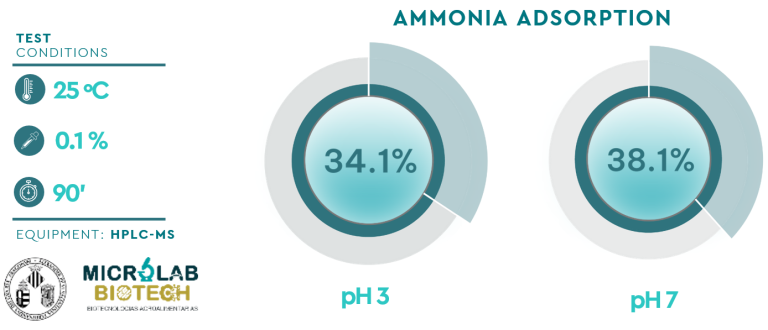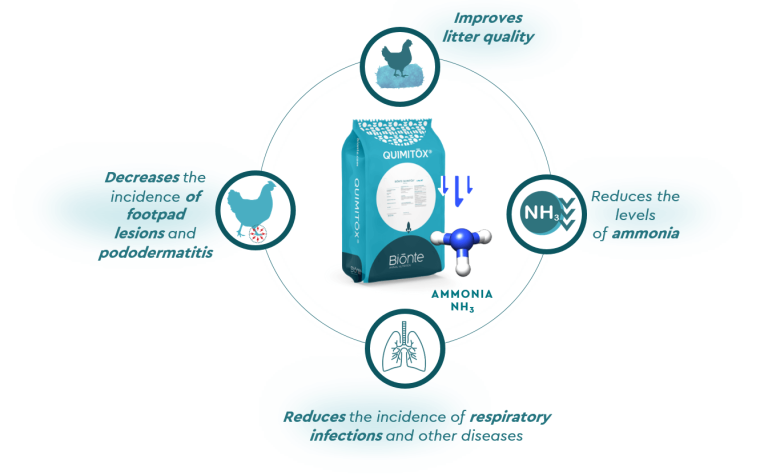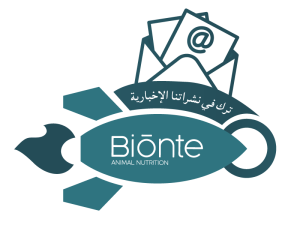As well documented by UE authority, industrial emissions (as nitrogen oxide, ammonia, mercury and carbon dioxide) are pollutants find into air, water and soil, proceeding from agriculture and farm management. These elements can cause detrimental effects on animal and humans, such as asthma, bronchitis and cancer, high blood pressure, heart attack and stroke.
In Europe, around the 75% of industrial emissions is characterized by ammonia (NH3) contamination, which principally arise from livestock production (Wyer et al., 2022). When animal consume protein, they produce uric acid, subsequently converted to NH3. Several factors contribute to increases in NH3 production, including, pH, temperature, moisture content, litter type, bird age, manure age, relative humidity, and ventilation rate (VR).
High levels of NH3 can have a negative impact on animal health and production. Poultry specie seems to be the most sensitive to this compound. In fact, many studies have highlighted the correlation between this gas and severe respiratory and skin irritation in birds, resulting in pododermatitis, hock burns and breast blisters (Nagaraj et al., 2007). Additionally, NH3 levels are generally linked to indoor air quality concerns because they reflect the effectiveness of ventilation systems.
Research, considering these factors, has shown NH3 emissions can be reduced through balancing diets and nutrients utilization. For example, the inclusion of mineral clay to control the production of NH3.
Dietary inclusion of clay can ameliorate the processes of digestion and nutrients absorption, promoting the performance of farm animals (Safaei et al. 2014). In addition, due to his electrical charges it shows a capacity to bind mycotoxins present in feed (Subramaniam et al 2015).
Since our product BIONTE® QUIMITOX® contains adsorbent material technically selected, we decided to test its in vitro capacity in binding NH3.
BIŌNTE® QUIMITŌX®: a high-quality anti-mycotoxins agent that binds NH3
BIŌNTE® QUIMITŌX® is an effective, broad spectrum and fast-acting mycotoxins binder that contains adsorbent material technically selected. Additionally, it is a selective product that does not adsorb essential nutrients for the animals such as vitamins and amino acids.
In order to test its efficacy against NH3 production, we conducted an in vitro study, in collaboration with the University of Valencia (Microlab Biotech). High pressure liquid chromatography with tandem mass spectrometry (HPLC-MS/MS) was used for evaluation.
As shown in figure 1, BIŌNTE® QUIMITŌX® showed a 34.1% at pH 3 and 38.1% at pH 7.

Figure 1. In vitro capacity of BIŌNTE® QUIMITŌX® in adsorbing NH3
Those results show how BIŌNTE® QUIMITŌX® (figure 2) reduces the levels of NH3. Consequently, this solution improves litter quality and, at the same time, prevents the incidence of footpad lesions and pododermatitis, as well as respiratory infections and other diseases. These consequences have been observed in the field following the use of BIŌNTE® QUIMITŌX® in poultry farms.

Figure 2. Effects of BIŌNTE® QUIMITŌX®
Conclusions
BIŌNTE® QUIMITŌX®, an anti-mycotoxins solution, showed a multiple action, binding NH3, thus preventing from the development of pododermatitis, hock burns and breast blisters, often observed in poultry species, while protecting the animals against the negative effects of mycotoxins.


